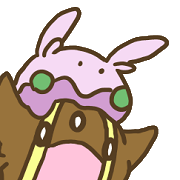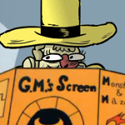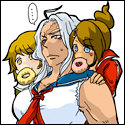|
I do love kung fu, so I am certainly interested to see more about it here. E: Reading further, that dice system sounds like a very difficult set to work with, since, as you say, the odds are very opaque. Night10194 fucked around with this message at 16:14 on Apr 3, 2021 |
|
|
|

|
| # ? May 3, 2024 14:39 |
|
Night10194 posted:I do love kung fu, so I am certainly interested to see more about it here. You can kind of brute-force it to get a rough idea of probabilities--the thing to remember is that, since difficulties go up in increments of 10, the number showing on the dice generally matters less than the size of the set, absent modifiers. If you're rolling against a difficulty of 30, whether you rolled three 3s or three 8s doesn't really matter, and since 0s count as 0 you're never going to get that 30 on less than three dice. So all you really need to do the math o (or have Wolfram Alpha do the math on for you) is the odds of rolling X of a kind: before modifiers, a starting character has about a 70% chance for a set of two, 25% for a set of three, 2% for a set of four, and dropping off sharply from there. (Those aren't "or better" odds, just the odds of those exact sets). As long as your modifiers stay in multiples of 10 also, you can just shift those odds up as necessary. It's not intuitive, but you could have at least published a reference chart for it (ORE books, in fact, generally do this, for this very reason). But then you get into +5s, which bump you up to the next difficulty only if your set is of 5s or better, and opposed rolls that don't have convenient even tiers, and loving around with your River, and hell I don't even want to think about figuring out the odds of multiple sets, and and and...
|
|
|
|
I'm looking forward to talking about ki conditions!
|
|
|
|
Ratoslov posted:I'm looking forward to talking about ki conditions! The entire Secret Arts system is... yeah. It's not actually a bad or overly complicated system, it's just explained really poorly, not terribly well organized, and is missing some key rules and concepts. I'm going to try to explain it better than the book does in my review, but it took me a lot of reading and rereading before I felt like I actually had a handle on it--and even then there's stuff I'm still not sure on. The funny thing is, from what I recall, one of the big selling points of Legends of the Wulin was supposed to be cleaning up and clarifying the Secret Arts as compared to Weapons of the Gods. I wish I still had a copy of Weapons, because now I want to see what the difference actually is. Despite my frustrations, though, I actually do genuinely like Legends of the Wulin. It really does capture the feel of wuxia stories in a way that lots of other kung fu-themed games just kind of... don't, at least for me. GimpInBlack fucked around with this message at 16:57 on Apr 3, 2021 |
|
|
|
GimpInBlack posted:The entire Secret Arts system is... yeah. It's not actually a bad or overly complicated system, it's just explained really poorly, not terribly well organized, and is missing some key rules and concepts. I'm going to try to explain it better than the book does in my review, but it took me a lot of reading and rereading before I felt like I actually had a handle on it--and even then there's stuff I'm still not sure on. holy poo poo yes please, I would like this very much. I was excited for this but got utterly stymied by character generation and play because so much of the system seems to be missing concepts (and so much of it is tucked away in loresheets).
|
|
|
|
Leraika posted:holy poo poo yes please, I would like this very much. I was excited for this but got utterly stymied by character generation and play because so much of the system seems to be missing concepts (and so much of it is tucked away in loresheets). I am by no means an expert in this game, but if there's anything in particular you want to see my cover in depth, do let me know!
|
|
|
|
Hell yes. I've loved these games despite their jank for a long time, even though I almost never get to play them. Thanks for doing this one. Edit: One thing that WotG provided a little more clarity on than LotW was, IIRC, that the former had a probabilities table in the back so you could understand the dice system a little better. An odd omission (again IIRC). I can't look at my books right now. I will say that, yes, the Secret Arts are still not explained well, but in WotG it was abysmally opaque. I think the vast majority of people who understood how it worked only did so because of the forums. And it's bizarre, because the central mechanic is deadass simple once it's explained in a straightforward way. That Old Tree fucked around with this message at 18:12 on Apr 3, 2021 |
|
|
|
LatwPIAT posted:Hey now, to be fair, 40k can't even do the satirical elements of 40k, it's only reasonable that anyone trying to copy 40k will fail in the exact same way. God I wish that were true, way too many fans just overplay the "If you're not a terrible fascist at literally all times, demons pop out of nowhere and skullfuck you, regardless of context" poo poo, and any excess fascism is out of an abundance of caution because the only things that can counter spiky spookydoom is hate and unthinking obedience.
|
|
|
|
Ronwayne posted:God I wish that were true, way too many fans just overplay the "If you're not a terrible fascist at literally all times, demons pop out of nowhere and skullfuck you, regardless of context" poo poo, and any excess fascism is out of an abundance of caution because the only things that can counter spiky spookydoom is hate and unthinking obedience. But have you considered that hard men have to make hard choices? Checkmate, leftists. (And just to make sure, yes I am being sarcastic)
|
|
|
|
Ronwayne posted:God I wish that were true, way too many fans just overplay the "If you're not a terrible fascist at literally all times, demons pop out of nowhere and skullfuck you, regardless of context" poo poo, and any excess fascism is out of an abundance of caution because the only things that can counter spiky spookydoom is hate and unthinking obedience. and the publishers for the longest time, though GW is pulling back when they realize literal loving Nazis are waving their IP around and it might hurts their bottom line. Robindaybird fucked around with this message at 19:43 on Apr 3, 2021 |
|
|
|
I wish I understood Legends of Wulin. Because it is so much fun to read about.
|
|
|
|
Age of Sigmar: Sons of Behemat Smash The State Warstomper Mega-Gargants are all about sheer power, and they tend to be younger and more aggressive types. They lead the Stomper Tribes, causing mayhem and terror whever they go. They are less territorial and possessive than the Kraken-Eaters and tend to be less focused than the Gatebreakers. Rather, they prefer to travel around in search of chaos and battle to take part in. If they find an army before it has started a battle, they may well offer their mercenary services, but they tend to care very little about who hires them, as long as they're going to get a fight out of it. They actually tend to favor aggressors, finding defensive battles more boring, and often have a strong respect for the forces of Chaos, whose societies are full of war and conflict. Some Warstompers are so addicted to fighting that they will immediately turn on their former employers the moment the battle ends, so they can enjoy the combat all over again. More cunning Warstompers don't do this. Instead, they focus on working for causes that will ensure that wars don't end. They will deliberately hire out to the side that looks like it might be losing in order to prolong the battles, smash anyone that seems likely to surrender and even hunt down diplomatic honor guards to prevent them from ever reaching their destination. They don't tend to care about the collateral damage - as long as a Warstomper gets a good fight, they're usually quite happy. They are often highly skilled tacticians and fighters, learning well the best ways to take down the kinds of military groups that they go up against often. They use their clubs and fists to shield against massed arrows, hurl rocks at artillery to counter it and use their own mass to take out shield walls, either by jumping up and down to shake them or stepping in over their ranks to get past the front wall. Cavalry charges are often the biggest challenge for a Warstomper to learn to handle, as the force can actually cause the tiny lances to harm them. They learn to smash the ground and roar to scare steeds and scatter them, while against greater foes such as drakes of magmadroths, they go for the throat and hold the beast out so it can't get a good attack in while they beat it to death with their club. Some cunning Warstompers even learn how to feign death or oversell their wounds to draw the enemy in, allowing them to trick these massive foes and unleash their full strength without worry. One of the more famous War-Stompers is One-Eyed Grunnock, formerly Grunnock Battle-Krasha. In Ghur's Necrosia, he attacked an Ossiarch legion just days after they had come into conflict with a group of Kharadron. He actually timed the attack for a diplomatic summit between the two sides, as they had reached stalemate and were considering a treaty. Essentially, the Kharadron were offering to leave the land and its bones to the Ossiarchs in exchange for rights to the aerial aether-gold in the area. As the deal was being finalized, Grunnock clumbed the plateau where it was being written and attacked anything in reach. Both armies eventually figured out they needed to get out of his reach after he crushed both the Kharadron admiral and the Ossiarch general making the deal. Eventually, a good shot from a Kharadron cannon took out Grunnock's eye and forced him to flee. He'd done what he'd come to do - the deal was forgotten, and Necrosia remains a chaotic battlefield to this day. Grunnock has found plenty of jobs since, having become even more ferocious now that he's constantly beset by terrible headaches.  Warstompers typically take trophies to commemorate their wins, especially the tough ones. They are known to take any weapon that sticks in their skin and make it into a crude talisman to prevent harm from that kind of weapon again. They also like to salvage shields and armor to build gauntlets for themselves to parry attacks, along with mantles made from salvaged flags, beast tusks and so on taken from more impressive foes. They're not usually very delicate, but they have enoughpatience and skill to make crude but effective gear, especially weapons. While lashing a boulder to a large tree or wielding a cracked pillar may seem simple, it often takes some work to make them effective tools that last more than a single battle. Most recently, the Warstompers have found the Stormcast to be a great target to focus their aggression on. Stormcast showing up in a region is, after all, a sure sign of a good fight to be had. Any self-respecting Warstomper that spots the lightning columns that signal their arrivals is going to get to the field as quickly as possible. This has led to them fighting most often on the side of Chaos, not out of any particular favor for the Chaos Gods, but because Chaos fights the Stormcast most often. While the gargants are generally disappointed by the inability to eat or loot the bodies of Sigmar's warriors, they love the fights, and Chaos pays pretty well. Now we head to the Stomper Background Tables for our three randomly rolled gargants. First, we have (1,3), (1,2), (3,1): Norgon Lumberfist, who has been stricken by a bestial curse! A Darkoath enchantress has cursed him so that he can speak only in growls, howls and barks, like an angry wolf. He has managed to succeed despite this by becoming very good at pantomime and showing his feelings through physical action. Second: (3,4), (2,6), (1,3) Dolgolp Cloudsniffer, infamous for his carrion wake. He leaves a trail of corpses wherever he goes, slaughtering his way through the Mortal Realms, and the carrion birds and scavengers around him have realized this. They follow him wherever he heads. Last: (3,1), (3,6), (2,5): Gongar the Bellower, who is tough as old boots. His skin is so tough and leathery that only the sharpest blades are able to cut it, and he is able to ignore most weapon despite being largely naked. Next time: Gatebreakers
|
|
|
|
Ah... Legends of the Wulin. The bestest game ever to be destroyed by embezzling to run a Chinese maid cafe.... If I remember the tales right
|
|
|
|
That Old Tree posted:Hell yes. I've loved these games despite their jank for a long time, even though I almost never get to play them. Thanks for doing this one. Here's the chart from WotG, which unhelpfully lists difficulty rating names but not the actual numeric rating of each difficulty. I flipped around in LotW and I'm pretty sure nothing like this is in there, leaving the chances of success pretty opaque to most people including whoever might be trying to run the game. 
|
|
|
|
SirFozzie posted:Ah... Legends of the Wulin. The bestest game ever to be destroyed by embezzling to run a Chinese maid cafe.... If I remember the tales right Wut?
|
|
|
|
SirFozzie posted:Ah... Legends of the Wulin. The bestest game ever to be destroyed by embezzling to run a Chinese maid cafe.... If I remember the tales right You can't just say something like that and then not provide details. Out with it!
|
|
|
|
Legends of the Wulin is hands-down the densest concentration of eye-opening mechanics I've experienced in my evolution as a RPG person. The ways it gives players control over the narrative are all extremely cool and completely unlike almost anything I've seen in the storygame world. It's been a real long time since I've read it, and I've never been able to get a group together to play it, but I remember being pretty blown away by how they formalize player backstory/worldbuilding, the whole secret arts system, and above all the whole way that players get to choose one of two ways to engage with Ki conditions. I'm pretty sad it never got bigger than it did, but I'm real excited to see this writeup here.
|
|
|
|
GimpInBlack posted:I am by no means an expert in this game, but if there's anything in particular you want to see my cover in depth, do let me know! Speaking specifically: how the gently caress scholars????????????????????????? How the gently caress priests, too, but mostly scholars.
|
|
|
|
SirFozzie posted:Ah... Legends of the Wulin. The bestest game ever to be destroyed by embezzling to run a Chinese maid cafe.... If I remember the tales right what And more importantly, was the Chinese maid cafe a success.
|
|
|
|
Comstar posted:what I don't believe it even lasted to their next scandal with Chuubos.
|
|
|
|
GimpInBlack posted:*WULIN* Heck yes, I love this game. I managed to score a hardback copy on Amazon when they briefly showed up for a reasonable price. I'm so mad EOS turned out to be a bad publisher, I think a second edition of LoW could have been really amazing.
|
|
|
|
That LotW resolution mechanic feels like it could be extremely swingy, unless you can pack on a lot of static modifiers, though I suppose your river helps balance that out some. But I feel like, knowing my usual luck, attempting to run any fights in this would tend to result in either two hours of both sides failing to hit each other or a complete steamroll. Are NPC's constructed in the same way as PC's or do they use some sort of more simplified implementation?
|
|
|
|
SkyeAuroline posted:I'll see what I can do to recover it, a few other goons were present and might have it saved or searchable. Just wanted to second that more analysis of the deep-rooted faults of Degenesis is always welcome! It would also be interesting to know how exactly they keep funding this incipient ~transmedia property~ considering all the expensive art they are giving away for free. Secret cache of nazi gold? Edit: sorry, missed that the summary came just a couple posts further down  SkyeAuroline posted:Pre-2016 was something of a different beast. PoontifexMacksimus fucked around with this message at 10:53 on Apr 4, 2021 |
|
|
|
PoontifexMacksimus posted:Just wanted to second that more analysis of the deep-rooted faults of Degenesis is always welcome! It would also be interesting to know how exactly they keep funding this incipient ~transmedia property~ considering all the expensive art they are giving away for free. Secret cache of nazi gold? Degenesis is published by SIXMOREVODKA, which is primarily a concept art studio based out of Berlin. They've had their fingers in a lot of pies, but primarily work with video games and comics. The head writer for Degenesis is Marko Djurdjevic, and he is also the head of SMV. He does a lot of Marvel covers and such these days, while his company is currently doing the art for Riot's Legends of Runeterra. That's where the money comes from, their successful artists fund their vanity transmedia project. (There's even a sample movie script on their website that you can download heh) They do Q&A's with their Discord community every now and then, and Marko has straight up admitted that the game has never made any money. The books themselves sell for a lot of Euros and they do have some other merch, but after years of not so much as breaking even, they made the decision to go free to play in early 2020. I believe the intent was to give the game out free to grow their fanbase, and then hopefully reach profitability via donations and new limited print runs for the hardcore fans willing to drop the cash on their premium books. Apparently this didn't work, as a few months later the staff was bitching on their discord that almost nobody was paying for the game they were giving out for free. Hipster Occultist fucked around with this message at 11:34 on Apr 4, 2021 |
|
|
|
 Part Two: Smiling, Proud Wanderers Character creation in Legends of the Wulin is a pretty straightforward process, but it's one that touches on a lot of systems and mechanics we haven't covered yet (unsurprising, since we're only on page 15 of a 320-page book), so we'll be jumping forward a bit from time to time in this post to address at least the basics of those systems. This section begins with a brief summary of the steps of character creation, which is a handy reference for once you know the game a bit better, but a) it's titled "Character Creation Guide" rather than Summary or the like, and since it's the first thing in the chapter it's natural to assume that this is the definitive discussion of character creation, which might well leave the reader very confused until they flip ahead a couple of pages and see the detailed description of each step. Personally I would have put this at the end of the section and called it something like a Summary or Quick Reference, but that's just me. Anyways, you start with a Concept, which is familiar enough to most of us here that I'm not going to go in-depth on it--though I will say that I appreciate that the book says you should work out concepts as a group and be mindful of group cohesion--if everybody else wants to play good-hearted wandering Buddhist monks, maybe it's going to take some work to get a ruthless bandit lord to work in that group. It's a small thing, but one that's always welcome. After your Concept you fill in the values associated with your Rank. There's no actual choices here--unless the Sage says otherwise, you start at Rank 4, which gives you a Lake of 7 dice, a River of 2 dice max, a maximum bonus of +10 to Skills, and limits you to a maximum of spending 2 Joss per round. It also gives you 2 points of Chi Regeneration per round (we'll get to more about spending Chi later, primarily in the section on kung fu styles), and a Chi Aura of 2. Chi Aura is a very important stat in combat, as it dictates your ability to reduce incoming damage, and I hope you remember that the table on this page of ability values by Rank exists because as near as I can tell the book never reminds you of it again. Not even so much as a "see the chart on page 18" in the combat section. Like a lot of things in this game, Rank is a simple concept that is needlessly overcomplicated by poor technical writing. Let's look at the Rank chart:  For one thing, you'll notice all of the values it provides, with the exception of Lake size and maximum Skill bonus, are always the same value: maximum Joss per round, Chi aura, Chi regeneration, they're always the same (technically, Lake and Skill maximum are also derived from the same value, just slightly less directly: your Lake is 5 + this value, and since skills are bought in increments of +5, what it's effectively saying is that you can have this many "ranks" of a Skill). There's no reason to treat them all as separate properties when it would be just as easy to say, for example, "Your Rank Limit is 2," and just refer to Rank Limit in the rules for things like spending Joss or using Chi Auras. But honestly, you could simplify it even farther--see, Rank goes from 5th (the lowest) to 1st (the highest). Which is fine, it makes sense with wuxia's love of "top X best Y" ranked lists of fighters, but there are a lot of techniques and special abilities that give you "one per Rank achieved" effects--which means one at 5th Rank, two at 4th, etc. If you just flipped Rank around and made it ascending (so 1st Rank is the lowest, PCs start at 2nd Rank, and 5th Rank is the highest), not only does that simplify those effects to just "a number equal to your Rank," by sheer coincidence your character's Rank is now the same number as all those derived traits, meaning you can just say "you can spend a number of Joss equal to your Rank" or "you regain (Rank) Chi every round" and the whole thing becomes simpler. Next up, you'll pick your Archetype. These aren't quite as restrictive as, say, character class in D&D--notably, they don't determine how good you are at fighting, this is a kung fu game, everybody is good at fighting. What they do determine is which Secret Arts you have access to at the start of the game, and... okay, if you've been following some of the chat in the thread you might have gotten the impression that Secret Arts are pretty opaque. We'll get to them in much greater detail later on, but in brief they are a set of abilities separate from your kung fu, which allow you to manipulate other characters (and sometimes yourself) with Chi Conditions. Chi Conditions are also a whole thing we'll discuss later, but again in brief, they're discrete mechanical effects that incentivize particular behavior, either via the carrot ("act in this way and receive a bonus") or the stick ("do not act this way or else receive a penalty"). Your Archetype also determines what Skill you use to Focus on Breath, which is a special minor action in combat that you can use to recover more of your Chi--helpfully, this skill is also the primary one they will use to activate their Secret Arts. The five Archetypes are:
 That's a lot of text; let's take an art break. Moving swiftly onwards, we get some thankfully much simpler to explain steps. Skills work pretty much like you'd expect--you add your bonus to your roll when doing the thing and try to beat the Difficulty. You get 20 points to spend on Skills, with each +5 costing 2 points and a maximum of +10, assuming you're starting at 4th Rank. You can also spend 1 point on a Specialty, which gives you a +5 in a specific application of a specific Skill, and can take you above the +10 cap, so you can have a +15 Skill bonus in particular circumstances. There are 16 Skills total and they're all pretty standard--Stealth, Tactics, Craft, Ride, etc. The only one that's a little unusual, at least for the presumed target audience of mostly non-Daoists, is Wu Wei, which we talked about a bit in the Archetype section. Next up are Virtues. There are ten of them, divided into the five Chivalrous Virtues (Benevolence, Force, Honor, Loyalty, and Righteousness) and the five Selfish Virtues (Ferocity, Individualism, Obsession, Revenge, and Ruthlessness). Each starts at 1, can go up to 5, and you have 15 points to spend on them. Virtues are a major part of the advancement system, which we'll get to at the end of this post, but for now just know that the more points you have in a Virtue, the more important it will be to your character's story. Conversely (and I always appreciate it when a game calls this out), a low score in a Virtue doesn't necessarily mean your character is lacking that Virtue (it can mean that, but it doesn't have to): it can also just mean that it doesn't matter much to your story, like if you're a wandering errant kung fu master with no ties, Loyalty probably isn't going to come up all that much for you. You can also choose up to two Disadvantages, if you want. These aren't Chi Conditions, just things that make your life harder. You might be Blind (which of course means you're Daredevil or Zatoichi and have honed your other senses to compensate for most day-to-day activities), have a Bad Reputation, or whatever. There's no list of these, it's just a freeform thing (though there are plenty of specific examples when we get into the Loresheets chapter). If a Disadvantage causes trouble for you in a session, you get bonus Destiny (XP, in other words). And now, the part you've all been waiting for: Kung Fu! All characters start with one External Kung Fu style, which determines your basic combat stats, what weapons you can use effectively, and what your fighting style is strong or weak against. There are fourteen external styles in this book, and none of them are real martial arts: you won't see Baguazhang or Southern Mantis styles here, you'll be choosing from things like Blossom Harvest or Bone-Fed Wolf Fang. You also get to pick one nternal Kung Fu style, which is how you channel your Chi into extraordinary, almost supernatural effects. There are eleven presented here: Five are "normal" styles with no affinity for a particular element, five more are examples of elemental styles (one each for Wood, Fire, Earth, Metal, and Water), and the last one is a Corrupt style, intended mainly for villains as it requires you to commit vile, despicable deeds in order to cultivate your demonic Chi. All of the styles are described in detail a fair bit later in the book, but the Guide at the beginning of the chapter gives a one-sentence overview that gives you a sense of what they're all about. We're also advised that we might want to hold off a bit on choosing these, at least until we've looked at the Loresheets in the next chapter. Several of them, especially the various factions and sects within the Wulin, have special secret techniques that can improve the basic styles, so that might influence your choice of styles. We're almost done now--we have a couple of Final Touches to fill in. We get one free Weapon, Light Armor, and our maximum pool of Chi points. If we chose a non-elemental Internal Kung Fu style, we have a maximum of 11 regular, non-flavored Chi. If we chose an elemental style (or that Corrupt style), we have 10 normal Chi and 2 Chi of the appropriate element (or Corrupt Chi). We'll get to why those particular values in the next section, and what those kinds of Chi mean later in the review. And finally, to round things off, we get 20 Destiny (XP, you'll recall) to spend on improving our abilities. In addition to all the normal things to spend Destiny on, we can also pay a little extra to upgrade our starting Weapon to a "Special" Weapon (which means it counts as two kinds of Weapon, which can get you extra abilities or bonuses and make the weapon usable with more external kung fu styles) or to upgrade our Light Armor to Medium or Heavy. At the Sage's discretion, we might also get an extra 15 points to spend specifically on Loresheets, to tie our character more strongly to the world. This special, Loresheet-only Destiny is called Entanglement, which segues us nicely into...  Character Advancement! As mentioned, Destiny is our XP equivalent, and you generally get 2 to 3 per session, with a max of 4 (like a lot of games, we get a few criteria on which to judge Destiny awards--one point as the base, +1 each for accomplishing major progress in the story, "a particularly memorable or entertaining session," and if your character was particularly hindered by a Weakness). These Destiny points can be spent on pretty much anything, there's a table of costs (and the SA Trad Games forum will be happy to know that these costs are mostly the same as at character creation, and where they aren't they're flat, not scaling). There is, however, a wrinkle when it comes to Chi. See, you can spend Destiny directly on buying a bigger Chi pool, but of course the whole point of practicing kung fu is cultivating strong Chi! Therefore, any Destiny you spend on kung fu styles, techniques, or your Archetype's Secret Arts, also count as if you had spent them on improving your Chi. Usually this will be normal Chi, but if you learn a special style you instead get special Chi. This is called Cultivation. It's also why your starting Chi pool is what it is: while your free external style and Secret Arts knowledge don't count as Cultivation, your internal style does. A new kung fu style normally costs 10 Destiny, which is coincidentally enough to buy one point of normal Chi or two points of special Chi. Remember Virtues, and how I said they played a big part in character advancement? Here's how that works. When you perform a "noteworthy action" that corresponds to one of the Virtues, you get two things: First, a number of points of Joss equal to your points in the Virtue. Second, a number of Entanglement also equal to your rating in the Virtue. Entanglement, you'll recall, is Destiny that can only be spent on Loresheets. Moreover, you don't spend your own Entanglement--the person who gave you the Deed does! Usually that's the Sage, but every player can also hand out one Deed per session to anyone else's PC. Normally you'll be earning things like getting a reputation with a faction or a prominent NPC turning up more often, but there's no actual restriction on what parts of the Loresheet you spend Entanglement on--it seems very in-genre to me to say "after that last fight with Grinning Peony, you realize you've unconsciously picked up enough of her style to replicate the secret Scarlet Feathers Rain attack! You'd better hope the Vermillion Devil Sect never figures out you've copied their signature kung fu!" Unfortunately we really don't get any advice on what should qualify, beyond "something either the players or the characters in the game would talk about afterwards" and an assumption that most players will average about one per session. You rank up once you've earned 50 Cultivation and 50 Entanglement, though, so you definitely want to embrace getting enmeshed in Kung Fu Drama Bullshit. Finally, the chapter rounds off with some suggestions on modifying these default rewards based on the length you're expecting out of your game, and on training times (which normally I'd roll my eyes at, but this is a kung fu game, and kung fu movies practically invented the training montage). And with that, we're 26 pages into the book--buckle up folks, it's gonna get more complex from here. Next Time: KUNG FU MULTIPLE CHOICE! So, we've got a few options here. Normally after a chargen chapter I'd do a post of example characters based on suggestions from the thread, but there's a lot of stuff yet to cover that's very important to character creation--we need to understand combat to understand kung fu, and we need to understand kung fu to understand a lot of the cool character options in the Loresheets. We could also continue plowing on in the order of things in the book, which takes a swerve into setting info (albeit setting info with mechanical heft) before veering back to actual rules. Or, we could break the five-element cycle and jump ahead to the combat, kung fu, and Secret Arts rules before circling back through the setting info and then do example characters before wrapping up with the Sage's chapter. What would you all like to see? Voting closes whenever it seems like there's a clear winner in the next couple of days.
|
|
|
|
Do NOT give someone kidney stones. This makes you a jerk. Kidney stones suck. Break the cycle, considering you've said the organization is very poor.
|
|
|
|
Let's explain how poo poo works first and then come back because this is one of my favorite games I've almost never played.
|
|
|
|
Benagain posted:Let's explain how poo poo works first and then come back because this is one of my favorite games I've almost never played.  As an aside, one of the things I love about LotW is that there's a whole lot of really good homebrew styles and other content, with a lot of love put into it.
|
|
|
|
Break the cycle: kung fu and Secret Arts, then loresheets, then sample characters. Combat might be better holding off until you have characters to illustrate it with, but I can also see how you'd need to touch on it before you talk Kung Fu. Changing the rank names would be easier, but I like the genre nod. They could have absolutely reduced that down to a simple table or something, though.
|
|
|
|
I feel like when you're in kung fu land you're allowed to count up just as much as you're allowed to count down.
|
|
|
|
Hipster Occultist posted:Apparently this didn't work, as a few months later the staff was bitching on their discord that almost nobody was paying for the game they were giving out for free. Must be the weird euro racism, because as we all know, lovely rules and no editing doesn't stop bad games
|
|
|
|
JcDent posted:Must be the weird euro racism, because as we all know, lovely rules and no editing doesn't stop bad games To be fair, weird racism also seldom stops bad games.
|
|
|
|
Leraika posted:
Yeah, the Half-Burnt manual is one of the better fan supplements Iíve read (and does a good job discussing some of the systemís actual mechanical issues and how they can be addressed) Speleothing posted:I feel like when you're in kung fu land you're allowed to count up just as much as you're allowed to count down. You are, but I do appreciate it since it strikes a nice balance between genre appropriate ranking/lists and things feeling too gamey/contrived I think it also helps root the game soundly in actual wuxia by saying ďthis is the rough upper limit on the power spectrum the game encompassesĒ, rather than giving an open ended measurement of power level that might tempt people towards xianxia through entirely reasonable numeric extrapolation of a 6th rank/level 21 (in D&D terms) - if youíre going to transcend being a powerful first ranker youíre presumably going to need to actually transcend and once you do that youíll be loving off to do whatever it is gods and actual immortals do (thatís not in the scope of the game)
|
|
|
|
Basically, and this is half-remembered, that one of the partners in China was discovered to have diverted funds from Legends of the Wulin's pre-orders (that was needed to print a full production run of the game), to his pet project, a maid cafe in China. This was something that was repeated in the Chuubos kickstarter (this time a factory they owned was the beneficiary, which meant the print run at the time never happened) https://forum.rpg.net/index.php?threads/the-frustrating-saga-of-eos-sama-and-the-chuubos-marvelous-wish-granting-engine-rpg.760171/page-3 Edit: was pre-orders, not kickstarter, the chuubos one was kickstarter SirFozzie fucked around with this message at 00:31 on Apr 5, 2021 |
|
|
|
JcDent posted:Must be the weird euro racism, because as we all know, lovely rules and no editing doesn't stop bad games In all seriousness, I think its a combination of factors. The game is kinda small, its got more reach in Europe than anywhere else really, but its still a pretty small fanbase so word of mouth doesn't generate a lot of interest. As you've seen yourself, even the two core rulebooks are dense as gently caress. It's a pretty big ask to get a table of players willing to dive into a little over 700 pages of dense rules and lore, especially when said lore is incomplete, hidden from even the GM to feed the supplement treadmill, and told in an often scattershot ARG or Dark Souls fashion. Its also a pretty hard system to GM. There's no proper bestiary, the Kartharsys book gives you stats for 2 animals, 3 mooks, and Sleepers/Marauders/AUSUMOS. It doesn't really offer much in the way of meta tools you that might help a GM, and basically foists most of the work of actually getting the system to function off on to the GM. If you think maybe you'll get some help by joining their community, I hope you don't dare break canon or they'll chase you out like you just put a hex on their dairy cows. If you get past all of that, then you get to all of the ignorant and ugly racism, sexism, and just plain bad game design. This is excused by their attitude that gatekeeping is good actually, and this system is meant for skilled GMs and mature players ready to handle dark and mature themes. I'm curious as to what folks felt as they played through a campaign though.
|
|
|
|
Hipster Occultist posted:I'm curious as to what folks felt as they played through a campaign though.
|
|
|
|
Hipster Occultist posted:This is excused by their attitude that gatekeeping is good actually, and this system is meant for skilled GMs and mature players ready to handle dark and mature themes. Then they shouldn't be mad they sold one copy of a book, should they?
|
|
|
|
 Part Three: Chi-Chi-Chi-Changes Well, with every vote so far being for "try to present this in an order that makes some drat kind of sense," I'm prepared to call that the clear winner. So let's skip ahead to:  Once again we start with some fiction, this time an action setpiece as befits the intro to the combat rules. Uncle Pai is an old man who lives a quiet, peaceful life near a Buddhist monastery, playing his flute and meditating--when a young woman called Ten Sword Princess shows up on his doorstep. It seems Uncle Pai used to be known as Phantom Cloud, and he trained a bunch of child soldiers in a bid to take over the Heaven Sword Alliance. All of them except Mei were killed, and she's now come back for revenge, bearing the nine swords of her fallen siblings. Uncle Pai, naturally, is the owner of the tenth sword which will complete her set and make her properly worthy of her name. They fight, naturally, and Ten Sword Princess wins, but it's a bittersweet victory--Uncle Pai dies proud of the warrior she's become, and Ten Sword Princess weeps for the death of the only father figure she's ever known. It's a pretty decent little story, even if the narration is sometimes a little too transparently describing game mechanics. The chapter proper starts with the rules for Chi. Chi comes in points, which you spend to fuel abilities--usually the techniques of your internal kung fu style, but some other abilities also require you to spend Chi. We've already mentioned that you can have, in addition to normal, "balanced" Chi, elemental Chi or Corrupt Chi--what we haven't discussed yet are Enlightened Chi, which only comes from certain special techniques that allow you to cultivate your own enlightenment, or what the benefit of these special kinds of Chi are. Normal Chi is straightforward: you can spend it on anything. Elemental chi counts double when spent on techniques from a style of the same element--so spending one Fire Chi counts as 2 points when fueling Fire style techniques--but you can't spend it on techniques from an opposing element. We'll talk about opposing elements more when we get to the Secret Arts, but every element is opposed by two others in a specific pattern. It also becomes much more expensive to acquire a type of Chi that opposes one you already have. So, while there's nothing technically stopping you from becoming the Five-Element Master and cultivating every single kind of Chi, you're going to end up with much smaller Chi pools than someone who specializes. Corrupt and Enlightened Chi work a little differently. Corrupt Chi counts as double for any Corrupt technique and any elemental technique. It doesn't oppose any kind of Chi except Enlightened. Enlightened Chi, meanwhile, counts as double for everything, even techniques with no special type at all. Naturally, it opposes Corrupt Chi. With the exception of those oppositions, spending Chi is freely mix-and-match. A Wood technique that costs 4 Chi can be paid for with 4 normal Chi, 2 Wood Chi, 2 normal and 1 Wood, 1 Corrupt and 1 Wood, etc. In combat, you regenerate a number of normal Chi determined by your Rank (1 at 5th, 2 at 4th, etc.) automatically at the end of each round. You also regenerate 1 point of any special Chi types you have, regardless of Rank. Some Conditions can influence this, and there's a special minor action you can use called Focus on Breath that lets you regenerate some extra normal Chi. Notably absent from this section? Any rules at all for regeneration outside combat. Now, granted, probably 80% of the techniques you'll be spending Chi on are combat related, but there are enough techniques with out-of-combat applicability, plus enough cases of rules that let you just spend Chi one-for-one on +5 bonuses to rolls, that this feels like a big oversight. My best guess would be to try out the following options and see which one works best:
 Now, let's talk about Chi Conditions. Chi Conditions are one of the major, important systems in Legends of the Wulin--they're the primary instrument by which you use your Secret Arts, but they touch on a lot of other aspects of the game as well. Unfortunately, only about half of the necessary basic info is presented here. The rest is in the Secret Arts chapter. So we'll be consolidating those two sources here. First and foremost, Chi Conditions are either a Weakness or a Hyperactivity. As you might guess, a Weakness constitutes a penalty, while a Hyperactivity is some kind of bonus. So far, not so different than a lot of games with Condition mechanics--but there's one key difference between Legends' Conditions and those in a lot of other games, and while it's subtle, it's extremely important to getting the core gameplay loop. See, in a lot of games, a Condition would just apply a penalty or a bonus on actions where that Condition makes sense: a Broken Leg Condition, for example, might give you a penalty on anything where you need to move fast or be agile. In Legends of the Wulin, though, that same Broken Leg Condition would give you a penalty when you ignore the fact that you have a broken leg. As long as you're narratively describing yourself as hobbling around on crutches, wincing in pain, and not kicking people in the face, you don't suffer the mechanical drawback. But if you ignore that, or try to do things like move a long distance in combat without some kind of justification, then you eat the penalty. Hyperactivities work pretty much the same--as long as your actions and descriptions support the Condition, you get the bonus. Yes, it's a largely narrative system, but that's the point--Conditions in this game are more about trying to dictate your opponent's options than just leveraging penalties on them. Take for example a case where you've plied a rival with strong wine before visiting the Imperial Court. You've successfully given him the Drunk Condition, so he's basically faced with two options: try to act with proper decorum, in which case he's eating a penalty to all his rolls, or act like a drunken fool in front of the Emperor, in which case he avoids mechanical penalties but is acting like a drunk idiot in front of the Emperor. So, with all that out of the way, what specifically can Chi Conditions do? Well, it depends on its severity. Trivial Conditions have no effect at all--they can be freely ignored, but they can be made worse by Secret Arts and other techniques. Minor conditions have a small effect, and Major ones are unsurprisingly bigger. Each Condition has one effect:
In addition to all the above, some Conditions belong to special descriptive categories that dictate how Secret Arts work with them. For example, Conditions that reflect a strong emotion are called Passions, and Courtiers can manipulate them, whereas Doctors deal with Injury Conditions and Medical Conditions. Technically, all Chi Conditions are also associated with one of the 5 elements, but that only matters if a Secret Artist starts trying to gently caress with it--the book says it's perfectly fine to ignore that part unless and until someone comes along and wants to do weird poo poo with it, then decide what element makes the most sense. So, with all that, how do you get rid of the blasted things? Well, every Condition has a Recovery difficulty (which is usually the roll result that created it), a Duration (which is how many successful Recovery rolls you need to make), and an Interval (which is how long, in-game, you have to wait after a failed Recovery roll to try again; if you keep succeeding on the Recovery roll you can keep rolling without waiting). So a Condition with Recovery 30, Duration 3, Interval 1 day means you have to pass three Difficulty 30 rolls (with an appropriate Skill bonus), and if you fail any of your Recovery rolls you have to wait a day for the next one. Oh, and Recovery is not optional--you have to roll even for Hyperactivities you want to keep around. You can try to keep Conditions you like around longer, either by using Secret Arts to keep them "topped up" or just by embracing the narrative element of your Condition to effectively penalize your Recovery roll. This will end up creating a complementary Weakness , though: try to keep your Drunken Master Hyperactivity going past its time and you might end up saddled with a Weakness if you don't act like an irascible old drunk all the time. Unfortunately, that's all I can say with clarity about Chi Condition recovery, because the rules simply do not tell us things like when or how to start making recovery rolls, either in or out of combat. They also can't seem to agree with themselves whether completing the recovery process removes the Condition altogether or simply moves it down in severity. My best guess is that, since Conditions are usually created by an opposed action, that initial resistance roll counts as a failed Recovery roll, so you have to wait the Interval before trying again, and that if for some reason you're making Recovery rolls in combat it's a minor action on your Initiative roll. There's also the problem that, if the roll that created the Condition was really lucky (or really powerful), you might be stuck with it for a really long time, and the rules... do not address that eventuality. I've seen house rules ranging from "reduce the Difficulty by 10 every Interval" to "keep adding up the results of your failed rolls, when that total exceeds the Recovery difficulty it counts as a success," but as written if somebody manages to land a Recovery 75 Condition on you, you're pretty screwed.  Okay, one last topic to cover on Chi Conditions, and we're done until we get to Secret Arts. That topic is Chi Deviations. These are kind of like a special Chi Condition, except that they're 100% permanent if you have any kind of special Chi. See, having a special Chi pool is, fundamentally, an imbalance in your system, and that manifests in weird ways. Deviations are either some kind of weird behavioral tic or taboo, in which case if you ignore it you cannot regenerate your special Chi until you start respecting it again, or mutations, in which case you don't have to worry about your Chi regeneration but you do have to worry about people reacting badly to the fact that you're a goddamn fishman now. These Deviations start out pretty subtle and minor, but the bigger your special Chi pool gets the weirder they become. I know it's the wrong country, but the weird monster ninja dudes in Ninja Scroll are prime examples of how weird this can get. There are examples of both kinds of Deviation for all 5 elements and Corrupt Chi. (Enlightened Chi doesn't have Deviations, because while enlightenment isn't the default state for humans it is, definitionally, also not a spiritual imbalance.) I'm only going to call out one example specifically: One of the suggested Wood Deviations is "your character has to have lots of sex," which is immediately followed by explicitly saying that this is not a license to be a creep, and you have to get the whole table's buy-in before you go down that road. I appreciate that, Legends writers. Next Time: KUNG FU... UMM... KUNG FU! GimpInBlack fucked around with this message at 13:24 on Apr 5, 2021 |
|
|
|
GimpInBlack posted:[*]Finally, and these are generally effects you'll only see from esoteric techniques, they can influence your Cultivation or Entanglement earnings. You'll recall from the last update that Cultivation is the "free" Destiny you get towards buying more Chi when you learn kung fu and Secret Arts, and Entanglement is the Loresheet-only Destiny you get for performing Deeds. The Cultivation version actually gives you extra Cultivation if it's a Hyperactivity and "eats" some of your Cultivation if it's a Weakness, while the Entanglement variation always gives you extra Entanglement, but it will get spent on negative complications if it's a Weakness vs. helpful connections if it's a Hyperactivity. Can you explain this one? Because having a status effect that influences the permanent growth of your character sounds pretty bad!
|
|
|
|

|
| # ? May 3, 2024 14:39 |
|
Leraika posted:Can you explain this one? Because having a status effect that influences the permanent growth of your character sounds pretty bad! Basically, for a Minor Weakness, one point of Destiny spent per session doesn't count for Cultivation, while for a Major one up to 3 Destiny per session doesn't count for Cultivation. But again, remember that that only happens if you try to ignore the Condition. As long as you act in accordance with the fiction of the Condition, you're perfectly fine. Also, remember that Cultivation only comes from buying kung fu or your Archetype's Secret Arts, so if for some reason you absolutely have to ignore the Condition, just buy some new Skill ranks or Loresheet-related purchases until you can get a Priest to lift the curse or whatever. Or just save your Destiny until you cure it. Either way, it's an extremely easy penalty to avoid. EDIT: And of course if circumstances really do conspire that you simply have to buy kung fu while ignoring this Condition, you can always make up for it by just finding someone who can give you a Cultivation bonus Condition and make up the difference. GimpInBlack fucked around with this message at 14:57 on Apr 5, 2021 |
|
|
































